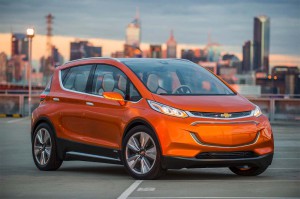
GM Chairman and CEO Mary Barra said consumers in China will need government enticements to buy EVs in the numbers it wants.
If the Chinese government wants a flood of electric vehicles racing around the streets of its largest cities, GM CEO Mary Barra believes they’re going to need to provide some substantial incentives to consumers to lure them behind the wheel.
Barra, who was speaking at company event in Shanghai, said the move toward new-energy vehicles, or NEVs, will require the government to entice a market that is very comfortable with gasoline-powered cars to make the switch along with viable products.
“While we are exploring all channels to boost NEV sales, building raw consumer acceptance of NEVs will depend on continued joint effort between the government and automakers,” Barra said, according to Reuters.
China’s regulators have put in place aggressive targets for NEVs, including having account for more than 30% of new vehicle sales by 2030. Compounding the problem for automakers is that the government plans to cut subsidies that help ease the anxiety first-time EV buyers have when making the jump.
(GM’s Barra takes seat on Disney board. For the story, Click Here.)

GM has already developed a long-range EV, the Bolt, for the U.S. It's now focusing on bringing EVs to China.
Automakers have been lobbying the government to reconsider the moves, but they’ve also begun funneling more resources into what is quickly becoming the largest electric-vehicle market in the world.
She said that GM would work with “the timetable of governments” on the mandates, but the goal would only be hit if the government played a role with consumers.
Barra noted the new mandates, combined with the government’s recent assertion that it may ban gasoline-powered cars altogether, did provide urgency for the automaker to develop a plan to introduce at least 10 new NEVs for the China market by 2020 and open a battery plant this year with domestic partner SAIC Motor Corp Ltd.
(Click Here for more about GM’s August sales in China.)
GM isn’t alone in bolstering its EV resources in China. Ford, Volvo, Volkswagen and other automakers have recently announced plans to add new plants to build electric vehicles in the country in the coming years.
China has set goals for electric and plug-in hybrid cars to make up at least a fifth of auto sales by 2025, as it combats air pollution and aims to close a competitive gap between newer domestic automakers and global rivals.
GM’s vehicle sales in China rose 12% in August, and are up slightly, 0.3%, year to date. The carmaker and its China joint venture partners sold 3.87 million vehicles in the country in 2016. Barra also mentioned that car-sharing enterprises may play a larger role in China’s efforts.
(To see more about Barra’s belief that climate change is real, Click Here.)
“We believe car-sharing and ridesharing – including shared autonomous vehicles – can greatly reduce congestion in our cities while still providing on-demand transportation to our customers,” she said.

Why shouldn’t the Chinese government be encouraged to have a much stronger focus on the PEV charging infrastructure investment instead of having such as strong focus on vehicle incentives? These efforts should particularly include intercity and Urban DCFC, single family home charging, multifamily residential charging (building codes, retrofits), and workplace charging.
From the OEM side.. the incumbent OEMs should be focused on figuring out how to make compelling vehicles that leverage the advantages of electric drive to make “better cars, that happen to be electric” as Tesla does instead of treating electric cars as a more expensive/inconvenient alternatively fueled vehicle. This does not mean abandoning ICE powertrains, but it does mean being more imaginative and for them to stop making compromised compliance cars.
Let’s don’t do this….again.
While Detroit was fighting emission standards in the 1970s, the Japanese engineered better vehicles that met the requirements…and we lost a huge share of our home market…forever.
The Chinese see an opening in the global vehicle market, and by pushing electric technologies, they will take advantage of Detroit’s reluctance to leave gas engines behind. China will dominate the global vehicle market in just ten years if we do not move!